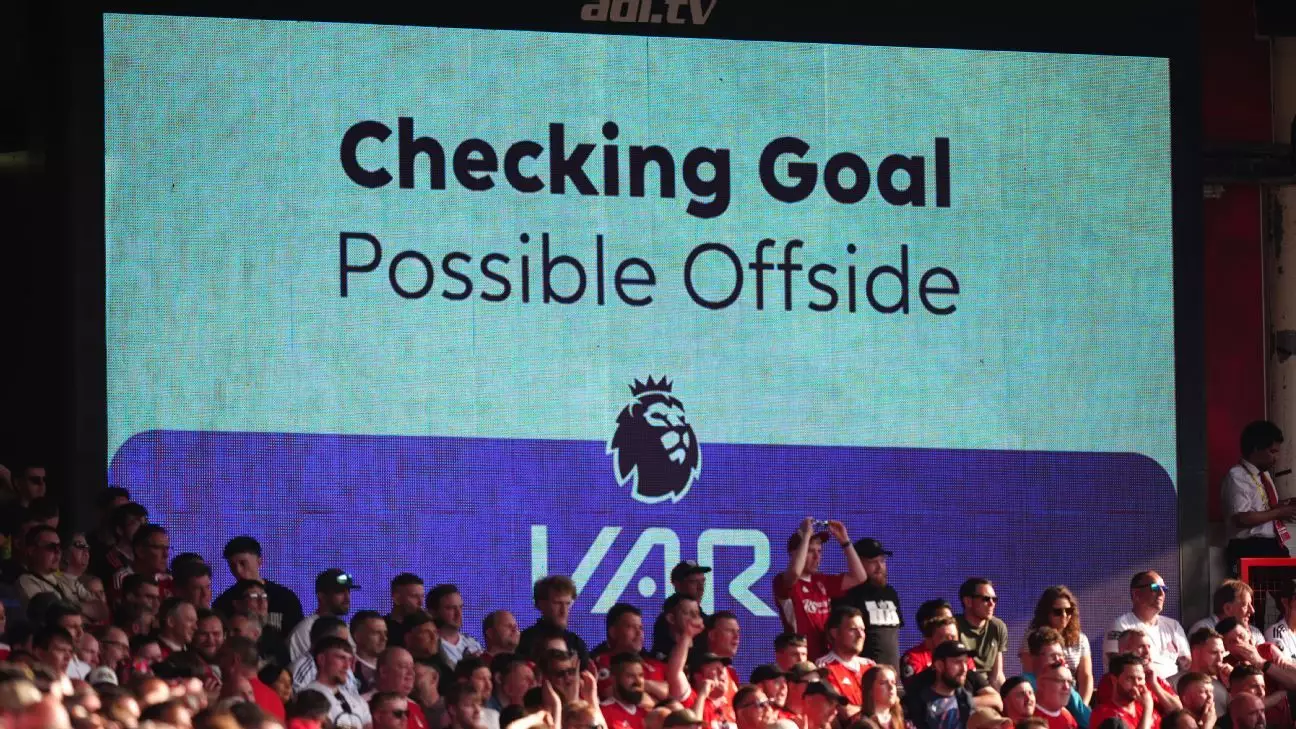Nottingham Forest Football Club is embroiled in controversy following a hefty fine of £750,000 ($979,526) imposed by the English Football Association (FA) for comments made on their official social media account regarding the officiating during their match against Everton on April 21. This financial penalty stems from a social media post that expressed dissatisfaction with the handling of key moments in a game that held significant implications for both relegation-threatened teams. The outrage primarily revolved around three critical penalty decisions that Forest believed were unjustly ignored by referee Anthony Taylor and Video Assistant Referee Stuart Attwell.
In their social media statement, Forest did not mince words. They claimed that “three extremely poor decisions” led to a detrimental outcome for their team, implying a lack of impartiality on the part of the refereeing unit. Forest questioned not only Attwell’s decisions but also his suitability for officiating a match that could have far-reaching consequences for teams battling relegation. Their strong reaction underscores a broader frustration within the club regarding perceived injustices in officiating, particularly during crucial matches.
In response to the fine, Nottingham Forest expressed deep disappointment, asserting that the sanction is “wholly disproportionate.” The club intends to appeal the FA’s decision, expressing concern about the FA seeking a punishment exceeding £1,000,000. This reaction from Forest indicates the club’s steadfast belief that the ruling infringed upon their right to voice grievances about officiating standards.
Nottingham Forest’s reaction illustrates a significant grievance against the governing bodies of football, stemming from a culture that, according to them, stifles open dialogue regarding officiating errors. Their assertion that the FA’s demands for an even heftier fine are unwarranted illuminates the immense pressure clubs face in navigating the complexities of modern football, where every decision can influence relegation or qualification for European competitions.
The match against Everton proved to be a turning point in Nottingham Forest’s season, ripe with pivotal moments that are now dissected by media pundits and former referees alike. The focus is on the three penalty incidents involving Ashley Young, a player whose actions sparked heavy scrutiny. Forest highlighted a tackle on Giovanni Reyna that many observers felt warranted a penalty, alongside an alleged handball by Young and a subsequent incident involving Callum Hudson-Odoi.
These decisions, or lack thereof, form the crux of Forest’s ire. Manager Nuno Espirito Santo voiced his bewilderment over the officiating, questioning how such clear-cut infractions were overlooked. His plea for “good decisions” echoes the frustrations felt by many clubs across the league, who contend with the inconsistent application of rules and technologies intended to enhance the fairness of the game.
Adding another layer to this unfolding saga is the involvement of Mark Clattenburg, a former Premier League referee who was employed as Nottingham Forest’s referee analyst at the time. His remarks in the media branded the officiating as a “hat trick of howlers,” suggesting that not only were the decisions faulty, but they reflected a troubling trend in officiating standards throughout the league.
Clattenburg’s involvement raises critical questions about the relationships between clubs, referees, and governing bodies. His call to scrutinize Attwell’s officiating capabilities highlighted the precarious intersection of personal bias and professional duty. It shines a light on systemic issues within the match officiating framework—issues that contribute to a climate of distrust among clubs, players, and fans, particularly in high-stakes situations like relegation battles.
As Nottingham Forest prepares to appeal the fine and challenge the FA’s stance, the narrative transcends a single club’s frustrations; it reflects a broader concern regarding the governance of football in England. The heavy-handed response to Forest’s post raises essential discussions about accountability, transparency, and the role of social media in shaping dialogue around officiating.
When clubs feel the need to publicly voice their dissent regarding officiating oversight, it can indicate a systemic failure in addressing and rectifying grievances that may affect the sport’s integrity. In an era where technology has been introduced to alleviate concerns of human error in referee decision-making, the persistent challenges signify a deeper-rooted issue that football must confront.
The Nottingham Forest case encapsulates the precarious dynamics of modern football, bringing to the forefront the critical need for enhanced dialogue and reform in officiating practices to uphold the integrity of the game. As the club navigates this turbulent episode, the outcomes could very well shape the future discussions surrounding officiating standards and their implications for the sport as a whole.

